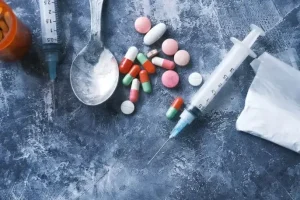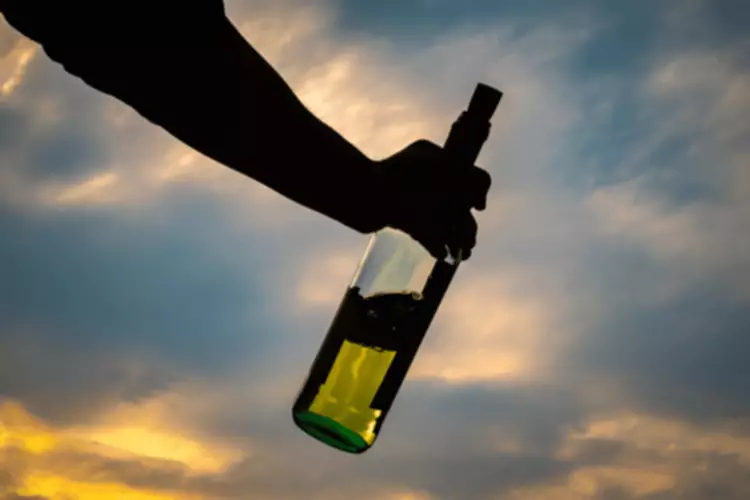
If you combine alcohol and drugs, you may not feel the effects of the alcohol. This may cause you to drink more, increasing your risk for an alcohol overdose. People who binge drink (drink more than five drinks in an hour) are also at risk for alcohol overdose.

Extreme Binge Drinking

The substance abuse crisis extends far beyond individual health impacts, creating enormous economic burdens, destabilizing families, affecting workplace productivity, and straining the criminal justice system. Because denial is common, you may feel like you don’t have a problem with drinking. You might not recognize how much you drink or how many problems in your life are related to alcohol use.
Can Alcohol Poisoning Kill You?
It’s essential to stay hydrated, eat before and while drinking, and never mix alcohol with other substances. According to the National Institute on Alcohol Abuse and Alcoholism (NIAAA), more than 178,000 alcohol-related deaths occur annually in the United States, with approximately 120,000 male deaths and 59,000 female deaths. The numbers showed a significant increase during the COVID-19 pandemic, rising from 78,927 deaths in 2019 to 99,017 in 2020, peaking at 108,791 in 2021, before slightly decreasing to 105,415 in 2022. The main causes include liver diseases, cardiovascular diseases, various cancers, and alcohol use disorder, with alcohol also playing a role in 17.4% of opioid overdose deaths.

Health Conditions
- It can lead to complications such as choking, brain damage, and even death.
- According to the National Institute on Alcohol Abuse and Alcoholism (NIAAA), more than 178,000 alcohol-related deaths occur annually in the United States, with approximately 120,000 male deaths and 59,000 female deaths.
- Drinking during pregnancy may result in fetal alcohol spectrum disorder.
Turn the person on their side if they are unconscious to prevent choking and monitor their breathing and heart rate. Providing relevant information to emergency personnel about the person’s condition and alcohol consumption is lifesaving. Repeated episodes of alcohol overdose lead to more severe health issues, including persistent brain damage, neurological impairments, and liver disease.
It is possible to consume a fatal amount of alcohol before passing out or losing consciousness. Your stomach will continue to absorb alcohol into your bloodstream even after you stop drinking. Several functions — including speech, balance, coordination, judgment, and reaction times — are significantly impaired. Memory gaps or blackouts may also occur, and the person may vomit. The only cure for alcohol poisoning is emergency medical treatment. Alcohol overdose is a serious issue and may lead to death if not treated.

In some people, the initial reaction may feel like an increase in energy. But as you continue to drink, you become drowsy and have less control over your actions. Delphi Behavioral Health Group can get you connected to all of the addiction recovery resources you need. With facilities staffed by expert teams of doctors, clinicians, therapists, and more, we’ll help you find the treatment program that will best fit your needs or those of your loved one. Use of this website and any information contained herein is governed by the Healthgrades User Agreement.
What Causes an Alcohol Overdose?
If you suspect an alcohol overdose and the person is unconscious, do not leave them alone. Emergency services face overwhelming demand from drug-related incidents, with significant increases during the pandemic. The surge in naloxone administration reflects both the severity of the opioid crisis and expanded access to alcohol overdose this life-saving medication. The high rate of polysubstance use among treatment admissions complicates recovery efforts. Methamphetamine use appears in over 40% of admissions, indicating a significant methamphetamine problem alongside the opioid crisis. While Indiana has a substantial treatment infrastructure, the high cost of residential treatment and limited free options create significant barriers to accessing care, especially for uninsured or low-income individuals.
However, even a mild disorder can escalate and lead to serious problems, so early treatment is important. Unhealthy alcohol use includes any alcohol use that puts your health or safety at risk or causes other alcohol-related problems. It also includes binge drinking — a pattern of drinking where a male has five or more drinks within two hours or a female has at least four drinks within two hours.
- Contact a medical professional if you or someone you know is exhibiting signs of an overdose.
- Delirium tremens usually begins 48 to 72 hours after alcohol withdrawal; anxiety attacks, increasing confusion, poor sleep (with frightening dreams or nocturnal illusions), profuse sweating, and severe depression also occur.
Alcohol poisoning vs. being drunk
- It’s important to label products accordingly and keep all types of alcoholic beverages out of reach of children.
- This represents a significant drain on public resources that could otherwise be directed to other services.
Consuming these products can also indicate signs of Alcohol Use Disorder (AUD). Many people suffering from this disorder may drink rubbing alcohol and other household products to get drunk. Edmund has an extensive background in addiction research and medical writing, working collaboratively with doctors, substance use disorder specialists, and clinical experts across all content on Recovered. Alcohol poisoning happens when you drink too much alcohol too fast. The time it takes alcohol to both have an impact and subsequently leave your system can depend on many factors, such as your weight and how many drinks you’ve had within a given time.

County-Specific Binge Drinking Rates
The BAC is measuring the amount of alcohol within a 30 min-70min period. Many people with alcohol use disorder hesitate to get treatment because they don’t recognize that they have a problem. An intervention from loved ones can help some people recognize and accept that they need professional heroin addiction help. If you’re concerned about someone who drinks too much, ask a professional experienced in alcohol treatment for advice on how to approach that person. Alcohol use disorder is a pattern of alcohol use that involves problems controlling your drinking, being preoccupied with alcohol or continuing to use alcohol even when it causes problems. This disorder also involves having to drink more to get the same effect or having withdrawal symptoms when you rapidly decrease or stop drinking.